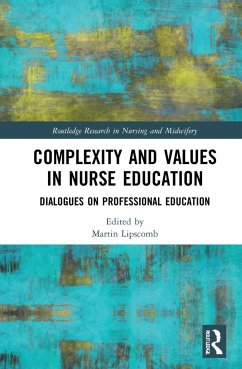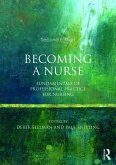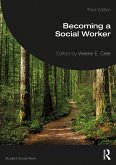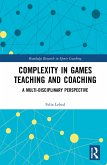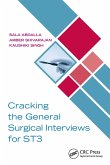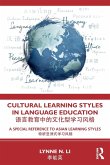This work explores the interplay of complexity and values in nurse education from a variety of vantages.
Contributors, who come from a range of international and disciplinary backgrounds, critically engage important and problematic topics that are under-investigated elsewhere. Taking an innovative approach each chapter is followed by one or more responses and, on occasion, a reply to responses. This novel dialogic feature of the work tests, animates, and enriches the arguments being presented. Thought-provoking, challenging and occasionally rumbustious in tone, this volume has something to say to both nurse educators (who may find cherished practices questioned) and students.
Given the breadth and nature of subjects covered, the book will also appeal to anyone concerned about and interested in nursing's professional development/trajectory.
Contributors, who come from a range of international and disciplinary backgrounds, critically engage important and problematic topics that are under-investigated elsewhere. Taking an innovative approach each chapter is followed by one or more responses and, on occasion, a reply to responses. This novel dialogic feature of the work tests, animates, and enriches the arguments being presented. Thought-provoking, challenging and occasionally rumbustious in tone, this volume has something to say to both nurse educators (who may find cherished practices questioned) and students.
Given the breadth and nature of subjects covered, the book will also appeal to anyone concerned about and interested in nursing's professional development/trajectory.
Roger Watson - Professor of Nursing, University of Hull (UK), editor-in-chief of Nurse Education in Practice.
I look forward to having a copy of this fine volume on my shelf. The international line-up assembled by Martin Lipscomb for this edited work should be a sufficient indicator of both the quality of the content and its readability. The format represents the best in free speech, robust debate and transparency, all values that are being rapidly eroded in society - an erosion that is also affecting debate within nursing and nursing education.
The work brings together some of the 'biggest hitters' in terms of recent developments in nursing research, philosophy, practice and education. Moreover, contributors have been carefully chosen. Some publicly disagree-politely-about aspects of nursing, and knowing many of the contributors, their personalities as well as their views are on display.
The book focuses on matters philosophical and ethical. There is no fixed format except that each chapter is accompanied by one or more responses and, often, a reply to responses. Anyone engaged in nursing education will immediately identify with the issues discussed. Many 'nails are hit on the head' and there is valuable advice here for aspiring nurser educators.
Miriam Bender - Associate Professor and Founding Director of the Center for Nursing Philosophy, Sue & Bill Gross School of Nursing, University of California, Irvine (USA).
This anthology addresses an important topic. Chapters provide philosophical dialogue on a wide range of current debates, and the book provides rich material for disciplinary thinking about the future of nursing education and practice.
I look forward to having a copy of this fine volume on my shelf. The international line-up assembled by Martin Lipscomb for this edited work should be a sufficient indicator of both the quality of the content and its readability. The format represents the best in free speech, robust debate and transparency, all values that are being rapidly eroded in society - an erosion that is also affecting debate within nursing and nursing education.
The work brings together some of the 'biggest hitters' in terms of recent developments in nursing research, philosophy, practice and education. Moreover, contributors have been carefully chosen. Some publicly disagree-politely-about aspects of nursing, and knowing many of the contributors, their personalities as well as their views are on display.
The book focuses on matters philosophical and ethical. There is no fixed format except that each chapter is accompanied by one or more responses and, often, a reply to responses. Anyone engaged in nursing education will immediately identify with the issues discussed. Many 'nails are hit on the head' and there is valuable advice here for aspiring nurser educators.
Miriam Bender - Associate Professor and Founding Director of the Center for Nursing Philosophy, Sue & Bill Gross School of Nursing, University of California, Irvine (USA).
This anthology addresses an important topic. Chapters provide philosophical dialogue on a wide range of current debates, and the book provides rich material for disciplinary thinking about the future of nursing education and practice.

